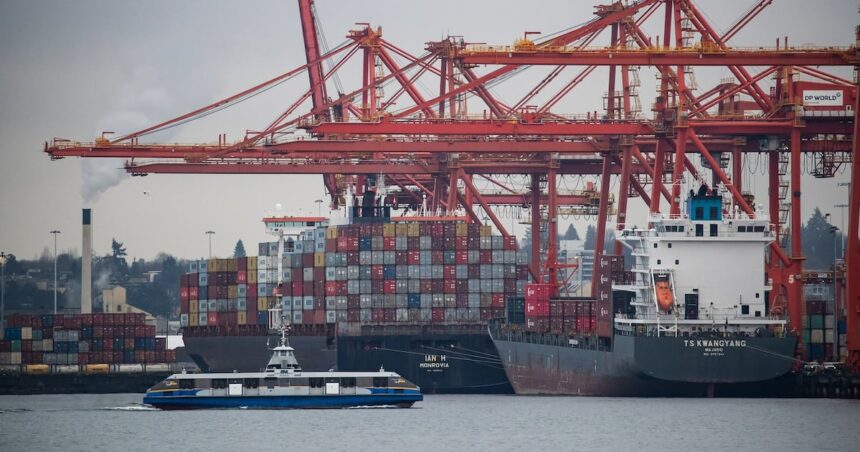Trade tensions with the United States have emerged as the primary financial concern for Canadians in 2025, according to a comprehensive nationwide survey released yesterday by the Healthcare of Ontario Pension Plan (HOOPP).
The annual financial stress barometer, which polled 3,500 Canadians across all provinces, found that 68% of respondents ranked “uncertain trade relations with the U.S.” as their top economic worry—a stark increase from 41% in last year’s survey.
“We’re seeing unprecedented anxiety about cross-border commerce,” says Michael Richards, HOOPP’s chief economist. “Canadians understand that our economy remains deeply intertwined with American markets, and the current geopolitical friction is creating real kitchen-table concerns.”
The survey comes amid escalating tensions following Washington’s implementation of targeted tariffs on Canadian aluminum and steel exports in April, which economists estimate has already cost the Canadian economy $3.7 billion in the first half of 2025.
British Columbia residents expressed the highest level of concern (74%), likely reflecting the province’s significant exposure to lumber export markets. Ontario followed closely at 71%, with respondents specifically citing worries about the automotive supply chain disruptions.
Beyond trade concerns, the survey identified inflation (62%), housing affordability (59%), and retirement security (52%) as other significant financial stressors for Canadians. Interestingly, climate-related economic impacts rose to fifth place at 48%, up from eighth place in 2024.
“What’s noteworthy is how these concerns vary by age demographic,” notes financial analyst Sophia Ahmed. “Younger Canadians between 18-34 are disproportionately worried about housing costs, while those over 55 prioritize trade relations and retirement security.”
The federal government has responded to the findings with promises of additional support for affected industries. Finance Minister Jordan Lee announced yesterday a $1.2 billion stabilization package aimed at vulnerable sectors, though critics argue this amount falls well short of addressing the scope of potential economic damage.
Provincial responses have also varied significantly. Quebec has launched a “Buy Quebec” campaign to reduce trade dependencies, while Alberta officials have called for increased pipeline capacity to diversify export markets beyond the U.S.
For ordinary Canadians, these macroeconomic tensions are translating into tangible financial strain. The survey found 43% of respondents have already made changes to their household budgets in response to trade uncertainties, with 28% delaying major purchases and 36% reducing discretionary spending.
As Canada navigates these complex economic headwinds, the question remains whether diplomatic efforts will succeed in easing cross-border tensions before more severe economic consequences materialize. With federal elections approaching in 2026, how political parties address these trade concerns could prove decisive at the ballot box.
For more financial news and analysis, visit CO24 Business or stay updated on developing stories at CO24 Breaking News.










